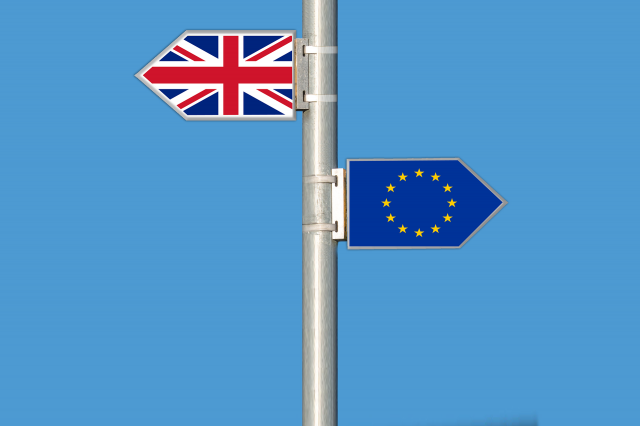German business warns of Brexit 'chaos'
Says it will cause massive disruption to trade, after overwhelmingly vote to reject EU withdrawal deal

Says it will cause massive disruption to trade, after overwhelmingly vote to reject EU withdrawal deal. PHOTO: REUTERS
"A chaotic Brexit is coming dangerously close," Federation of German Industry (BDI) director Joachim Lang said in a statement, warning that more than €175 billion ($200 billion) of German-British exchanges in goods and services could be affected.
"The top priority must be to avoid a hard Brexit," Lang added. "Responsibility for that lies solely with the government and the opposition in London."
How Europe reacted to Brexit deal defeat
British Prime Minister Theresa May faces a no-confidence test in Westminster late Wednesday after MPs rejected her hard-fought pact with Brussels by 432 to 202 votes.
Without a withdrawal agreement, Britain will abruptly tumble into "third-country" status after March 29 and face regulatory and tariff barriers to trade with the EU, rather than enjoying an almost two-year "transition period" when present rules will still apply.
For firms, "I believe it won't be possible to prepare properly for the chaos," Martin Wansleben, director of the Association of German Chambers of Commerce and Industry (DIHK) told public broadcaster SWR2.
Wansleben pointed to the car industry with its continent-spanning supply chains as a key sector that would be disrupted by Brexit.
"If they no longer have the same rules as in Europe, if they must pay tariffs, then it's increasingly unrealistic or no longer economically rational to produce for all of Europe in such a country," he said.
British parliament votes down May's EU divorce deal by 230 votes
Germany's car industry is present in the UK with production sites like BMW's Mini plant in Oxford or two factories belonging to Vauxhall, a subsidiary of Peugeot-owned Opel.
"Without orderly and workable solution for economic exchanges, jobs in the car industry are at risk, especially on the British side," warned Bernhard Mattes, president of the VDA carmakers' federation.
Meanwhile, Federation of the German Chemical Industry (VCI) head Utz Tillmann predicted "damage far beyond our industry" if supply chains were disrupted.
Governments on both sides must agree "transitional solutions" to preserve the most essential trade even in case of no deal, Tillmann said.
"In particular, this is about supplies of medicines in the UK."



















COMMENTS
Comments are moderated and generally will be posted if they are on-topic and not abusive.
For more information, please see our Comments FAQ